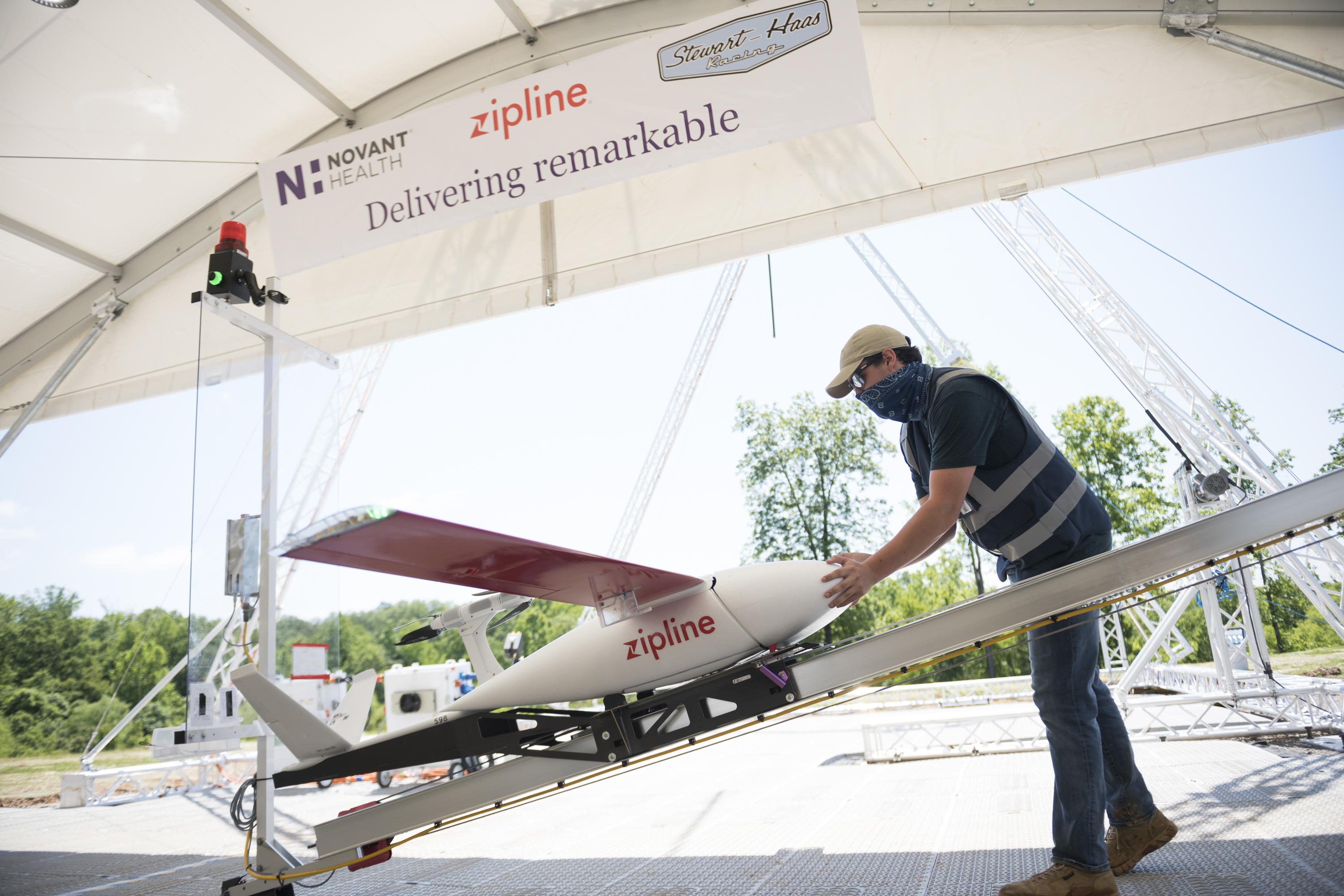
Zipline and Novant Health announced on May 27 that they have received emergency approval from the FAA to fly medical supplies by drone to a hospital north of Charlotte, North Carolina, to support its response to the coronavirus pandemic.
Under waivers granted to Novant Health, Zipline’s fixed-wing drones have started flying personal protective equipment for medical workers between a fulfillment center in the city of Kannapolis and the Novant Health Huntersville Medical Center, a round trip of about 30 mi. The service in later phases will expand to other area hospitals.
Zipline described the medical delivery service as the first ongoing, long-range U.S. drone logistics flights approved by the FAA. It conducted the first flight in Class D controlled airspace on May 22 and started regular operation on May 26.
NASCAR team Stewart-Haas Racing contributed the site for the emergency drone fulfillment center, which is adjacent to a Novant Health logistics center.
To accommodate the operation, the FAA issued three waivers to its Part 107 regulation governing the commercial use of drones weighing less than 55 lbs. The waivers allow Zipline to fly its drones beyond the direct visual line of sight of the remote pilot and of any visual observer, and over people not directly involved in the operation.
The company says it uses visual observers for “airspace deconfliction” to ensure the drones stay clear of other aircraft, but in this case they are not required to maintain visual line of sight.
Zipline plans to expand operations in North Carolina under a more comprehensive Part 135 operating certification in the next two years.
Launched from a base facility by electric catapult, a Zipline drone has a maximum takeoff weight of 46 lbs. and payload capacity of 3.9 lbs. The aircraft delivers supplies to a distance of 50 mi., drops the parcel by parachute and returns to the base. There, a wire strung between two actuated, vertically mounted arms snags a hook on its tail boom to bring it to a stop.
Zipline launched a drone service to transport units of blood to hospitals in Rwanda in 2016, and three years later to deliver vaccines, blood and medication in Ghana. Based in Half Moon Bay, California, the company is also developing drone delivery operations in Australia and India.
In the U.S., Zipline is participating in the FAA’s Unmanned Aircraft Systems Integration Pilot Program (IPP) as part of an effort led by the North Carolina Department of Transportation (NCDOT).
“The COVID-19 pandemic has tasked us with being even more nimble and innovative in how we solve complex challenges,” Novant Health chief digital and technology officer Angela Yochem said.
“Fast-tracking our medical drone transport capability is just one example of how we’re pioneering in the health care industry, which is known for being resistant to change,” Yochem added. “We are very grateful to the FAA and NCDOT for their help to expedite the process during this unprecedented time.”
Another drone manufacturer participating in the North Carolina IPP effort—Flytrex, of Israel—announced separately on May 26 that its partner Causey Aviation Service had submitted a petition to the FAA for Part 135 air carrier certification. Causey would operate Flytrex’s FTX-M600P hexacopter to deliver food or supplies directly to residential backyards, lowering packages by tether to the ground.





